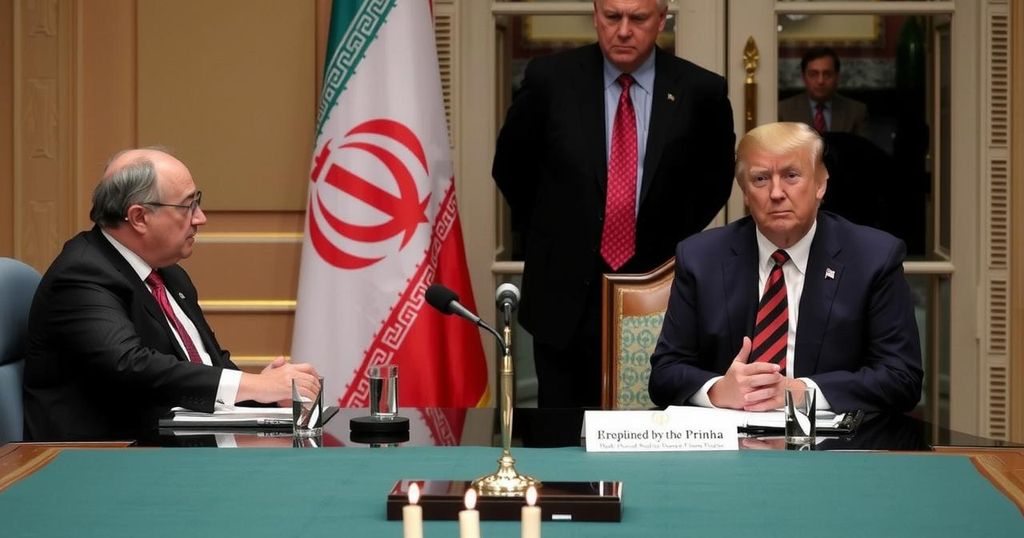Iran is engaged in secretive negotiations with Germany, France, and the UK in Geneva concerning its nuclear program. The discussions are primarily aimed at lifting sanctions, with both sides expressing a willingness to continue dialogue amidst significant geopolitical anxieties, particularly ahead of Donald Trump’s return to the presidency.
In Geneva, Iran and the main European powers—Germany, France, and the United Kingdom—commenced two days of negotiations regarding Iran’s nuclear program on the eve of Donald Trump’s presidential inauguration. These discussions feature significant confidentiality, with few details regarding participants or location being disclosed.
The meetings, described as serious and constructive by Iran’s Deputy Foreign Minister, Majid Takht-Ravanchi, included discussions on lifting sanctions, nuclear issues, and regional concerns. Although the German foreign ministry referred to these gatherings as “consultations” rather than negotiations, Iranian officials emphasized the importance of reaching an agreement.
The Iranian Foreign Ministry underscored that the primary goal of the talks is to alleviate sanctions affecting Iran, while acknowledging that it remains open to addressing topics raised by the European nations. The French government remarked that these discussions reflect ongoing efforts to achieve a diplomatic resolution to Iran’s escalating nuclear ambitions, which have raised alarms in the West.
Tehran’s recent actions, such as enriching uranium to 60%, have spurred strong warnings from European leaders, who indicated the potential reimposition of sanctions against Iran to thwart its nuclear armament efforts. The upcoming return of Donald Trump to power, known for his firm stance against Iran, adds urgency to the discussions. The geopolitical landscape surrounding Iran has shifted due to increased military conflicts involving groups allied with Iran in the region.
The negotiations in Geneva occur in a highly sensitive context, following Iran’s announcement of advancing its nuclear program and amid growing concerns from Western countries regarding Tehran’s intentions. The backdrop of these discussions includes the impending return of Donald Trump, a former president whose administration adopted a stringent ‘maximum pressure’ approach towards Iran, fundamentally reshaping the diplomatic landscape of nuclear negotiations. Previous agreements, notably the 2015 deal, aimed to restrict Iran’s nuclear capabilities in exchange for sanctions relief, yet recent developments threaten this balance, prompting renewed dialogue among the involved nations.
The talks in Geneva are critical in the context of Iran’s nuclear ambitions and the geopolitical ramifications of these negotiations. With sanctions relief as a focal point, coupled with the pressures of an imminent Trump presidency, these discussions represent an essential step towards either mitigating or intensifying tensions in the Middle East. The commitment to ongoing dialogues underscores the complex interplay of diplomacy, regional security, and international relations surrounding Iran’s nuclear program.
Original Source: www.swissinfo.ch






